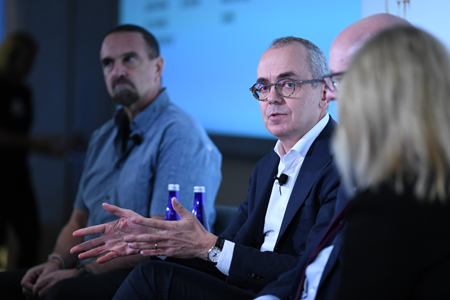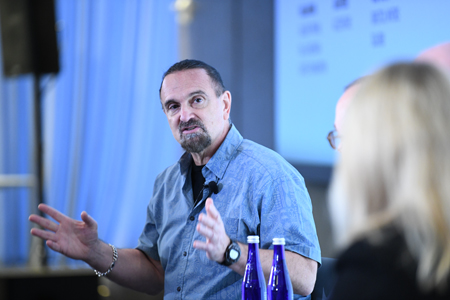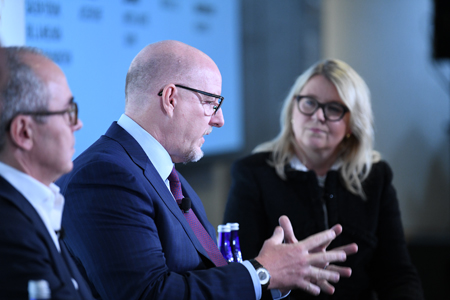Big Pharma CEOs Discuss Collaboration, Talent And IRA Implications At Galien Forum

By Ben Comer, Chief Editor, Life Science Leader
This article is part two of a two-part series covering the highlights of the Galien Forum. Part 1 can be accessed here.
The second half of the Galien Forum on October 27 convened a panel on reframing the biopharma business model, as well as a panel on the current state of COVID-19 therapies and a future outlook.
Panelists from both sessions pointed to a need for education and additional focus on building trust in the healthcare system. According to Edelman’s Trust Barometer survey data, published in March 2022, 52% of respondents said the COVID pandemic decreased their confidence that the healthcare system is well-equipped to handle major health crises. Fifty-five percent of Edelman’s 10,000 respondents expressed worry about medical science becoming politicized or being used to support a specific political agenda.



Regarding the price negotiation provision, Davis said: “It’s not negotiation, it’s price setting.” The IRA won’t have much of an impact on Merck’s bottom line in the short term, he said, but longer term, “it will have a chilling effect.” Davis used the example of Merck’s blockbuster cancer drug Keytruda to illustrate the long-term implications, noting that Keytruda — despite receiving a first FDA approval in 2014 — is currently less than halfway through its development program. After the IRA, he said, Merck may not be able to use the strategy of multi-year, ongoing new indication development, given that the IRA’s price negotiation capability, which begins at 13 years for biologics and nine years for small molecule drugs.
The Galien Forum wrapped up with a panel on COVID-19, and a disconcerting comment from Florian Krammer, professor of microbiology, pathology, molecular and cell-based medicine at the Icahn School of Medicine at Mount Sinai: “We actually might be worse prepared for a new pandemic than we were before COVID.” Investing in prevention, as opposed to acute care and emergency response, is not something the U.S. health system has prioritized, panelists said. “Public health must be kept separate from politics,” said Peter Marks, CBER director, FDA. Building back trust in the healthcare system — including the government agencies and officials tasked with keeping Americans safe — is important, but specific ideas about how best to engender this trust were not discussed.
